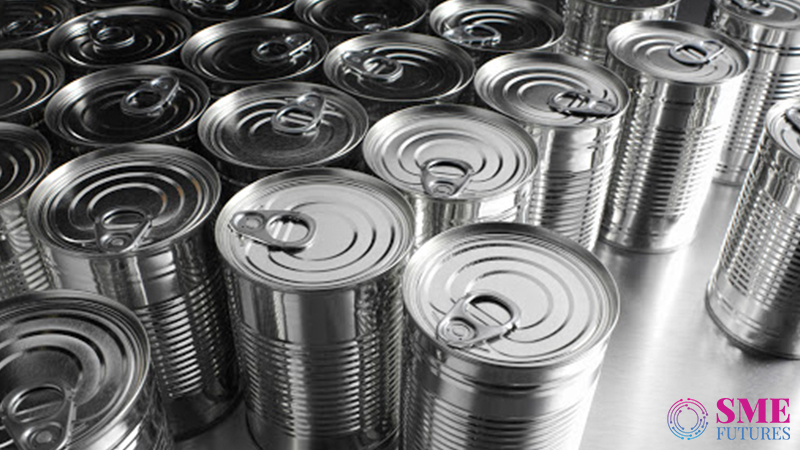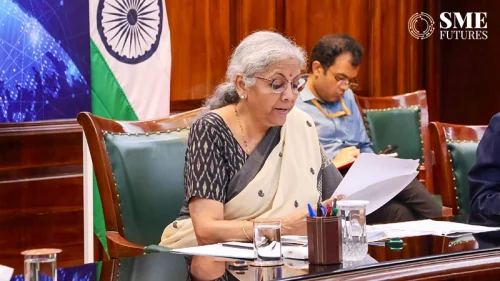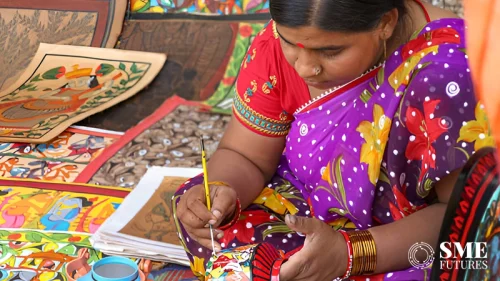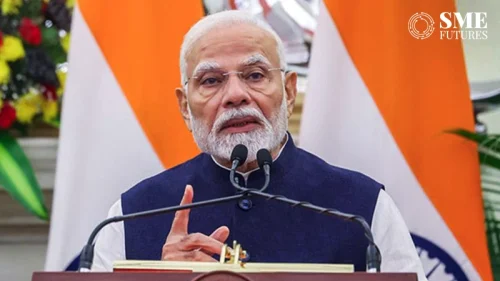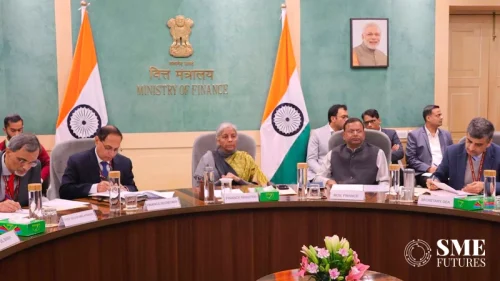Key Drivers
The packaging industry is one of the most vital growing sectors in the country owing to the rising population, increasing income levels, changing lifestyles, modern retail, and increased media. The market’s swift growth is driven mainly by pharmaceuticals, foods and beverages, decorative, paints, etc. With companies making huge investments across sectors such as food processing, personal care, paint and pharmaceuticals, end-user industries generate opportunity for growth of the packaging market, which is grown more than 10% p.a.
Reports by retail association indicate that in the current times of Covid-19 more opportunities for packaging of food products for longer shelf life, sanitisers and disinfectants in aerosol cans etc. are being created.
Challenges
Despite the immense opportunity, the industry is going through one of the most challenging times. Like many other industries, the metal packaging industry also suffered a setback when the countrywide lockdown was announced on 24th March 2020 by Hon’ble Prime Minister.
The packaging materials were included in India’s essential goods, and the industry was allowed to operate. However, the sector lost production for 40 to 45 days. Metal packaging industry worked hard to reset their businesses and started supplying to various esteem customers, so the supply of essential food products was not disturbed in the market.
The industry also lost the business of various food products that were canned in the tin container to be consumed by the hotels, restaurants, and catering industry (HORECA segment) as the latter could not operate.
The said business is now gradually reviving with the partial opening of restaurants, hotels etc. The industry also faced issues in running the units and availability of inputs/ employees due to movement restrictions in the containment zones.
But the major issue currently is the mandatory imposition of the BIS standard on the steel and steel products vide Quality Control Order dated 17th July 2020 issued by Ministry of Steel. Govt. of India.
QCO has levied mandatory BIS Certification on the industry’s significant inputs like tinplate/ tin-free steel and put a compulsory restriction on many steel products like easy-open ends, peel off ends etc., which the industry is importing from various countries.
The resistance of the metal packaging industry against the imposition of BIS is owing to many reasons. The QCO has been issued when the entire industry is already stressed to reset their business due to the pandemic. Besides, it is practically impossible to force the international suppliers to go for BIS certifications as getting BIS Licence is quite cumbersome and costly.
From the perspective of the International suppliers of Tin Plates, India is relatively a small market, so they are not very keen to get into lengthy bureaucratic and cost-intensive BIS certification procedure. As a result, Foreign suppliers have halted shipping Tin plates to India, which has led to a further shortage in the domestic market.
This has led to a very steep increase in the local Tin plate prices due to the two producers’ virtual monopoly. In the quarter starting October to December, there is an increase of about 6% to 7% in the tin plate/ tin-free steel prices and another 7% to 8% announced an increase from January onwards.
The industry apprehends a further increase in tinplate/ tin-free steel prices, which is almost equal to 60% of a tin container. This inflated price increase in tinplate, consequently cans, may compel the existing customers to move away from metal Packaging to other alternate packaging options, especially in food, beverage and paint industry. The industry that is mainly concentrated in MSME will not survive the hefty price increase of tinplate, loss of business to alternative packaging materials and an upsurge in working capital requirements.
Furthermore, there is a demand-supply gap going by numbers, i.e., the industry needs about 7 lac tonnes of material while the domestic production is about 4.50 lac tonnes. Keeping in mind the demand and growth of about 5%, the industry meets its requirement from imports and with the kind of investment it has done and employment it provides, industry’s requirement of material has to be met.
Moreover, Industry imports both prime and non-prime materials to manufacture tin containers/ various products for food and non-food segments. The industry can use non-prime material to manufacture tin containers for non-edible products like paints, chemicals etc. and various other products like stationery items, lantern etc.
Non-prime material arises when the prime material is produced by the tinplate mills and is categorised as non-prime due to thickness variation, surface defect etc. These commercially cheaper materials can be conveniently used in India where labour availability is comparatively cost-efficient, and the cans/ products are manufactured either manually or in a semi-automatic process. In the case of BIS imposition, such non-prime material will not be available to the metal packaging units in MSME sectors.
It means that they will have to depend on the prime material, which is approx—35% expensive than the non-prime material and already in short supply.
Further, in Free Steel is manufactured by only TCIL and that too, once in a quarter and very small quantity. This hardly meets Tin Free Steel’s requirement of the domestic market and obviously, the can manufacturers have to depend on imports to meet their customer’s needs.
Recommendations to the ministry
Raising its concern over the issue, the industry has put forth a set of recommendations to the ministry, and it is hoping for a positive response from the policymakers since the industry is providing packaging material & packaging solutions in the form of tin container, closures etc. to food, beverages & other household Industry. Besides edible products, there is an extensive use of tin plates in the MSME sector engaged in manufacturing of lantern, stationery boxes, mosquito coil holders, and so many other day-to-day low-cost utility items. Moreover, the industry provides direct and indirect employment to over 1 lakh people.
Need to replicate old ways to recapture the lost momentum
Things for the industry can go back to the normal if the QCO is dropped; for example, a similar notification imposing mandatory BIS standards was brought earlier in 2008, 2015 and 2017. However, after considering trade and industry representation and keeping in mind practical issues in implementation, the government withdrew the said notifications.
The local producers had also filed applications with Directorate General of Trade Remedies (DGTR) for the imposition of Anti-Dumping Duty on import of tinplate favourably considered by DGTR on 17th June 2020. The DGTR recommended levying Anti-Dumping Duty ranging from Rs.15000 to Rs.25000 per tonnes for import of tinplate/ tin-free steel etc. from select countries. The Ministry of Finance favourably considered a representation of MCMA and decided to drop such recommendation; hence no Anti-Dumping Duty was imposed.
And although demand of MCMA is for a complete withdrawal of QCO, like it has been done in the past, alternatively it has sought extension till March 2022 which will give more time to explain to the Policymakers about the serious impact it will have on the industry. This will also provide time to the foreign producers of tinplate and manufacturers of steel products to complete complex formalities for obtaining BIS license to continue supply to the metal packaging industry in India.
Way forward
Considering the market is already favouring the metal packaging industry in terms of the demand, much depends on government policies. As soon as it becomes favourable, it will undoubtedly lead to a promising future for the Indian metal packaging industry. By withdrawing the mandatory certification, the foreign suppliers will restart shipping Tin plates to India as there is a massive shortage in the domestic market.
Furthermore, to make the environment more conducive and promote localisation of steel products, the government should set up a soft loan payable in more than ten years for the packaging industry. Also, since metal packaging is 100% recyclable, environment friendly, and sustainable packaging material, the government should take out a scheme to incentivise the user industry to encourage the use of such packaging material.
And as far as the industry is concerned, to remain competitive, compliance to various environmental requirements and to supply quality packaging materials to the market is necessary; additionally, there is a need for the industry to continuously work on adopting new technologies in can making which will enable the companies to produce quality cans cost-effectively. So there is a need to have a continuous focus on innovation. Moreover, companies need to adopt environment-friendly technologies in the can making process; and promote localisation of imported components like easy-open ends, peel off ends etc.
So, keeping in mind that the government is continuously tightening up the compliances of environment and the alternate packaging material are adopting the latest technologies, it is essential for the metal packaging industry to always work for improvement to be relevant in the packaging sector.

